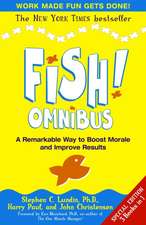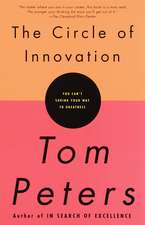Designing Stress Resistant Organizations: Computational Theorizing and Crisis Applications: Information and Organization Design Series, cartea 3
Autor Zhiang (John) Lin, Kathleen M. Carleyen Limba Engleză Hardback – 31 mai 2003
At the theoretical level, the book contains a comprehensive computational framework called DYCORP, which simulates dynamic and interactive organizational behaviors by incorporating multiple factors such as organizational design, task environment, and stress, and which generates consistent and insightful propositions on organizational performance.
The book utilizes an organization science based approach to computational modeling. This approach recognizes the limit of human cognition as it was outlined by Herbert A. Simon in 1947. The model strives to focus on the essence of the reality that is most relevant to the research issue. This approach has been proven to be more beneficial for us to understand the underlying dynamics of the phenomenon.
| Toate formatele și edițiile | Preț | Express |
|---|---|---|
| Paperback (1) | 637.46 lei 6-8 săpt. | |
| Springer Us – 7 dec 2010 | 637.46 lei 6-8 săpt. | |
| Hardback (1) | 644.49 lei 6-8 săpt. | |
| Springer Us – 31 mai 2003 | 644.49 lei 6-8 săpt. |
Preț: 644.49 lei
Preț vechi: 758.23 lei
-15% Nou
Puncte Express: 967
Preț estimativ în valută:
123.33€ • 131.88$ • 102.82£
123.33€ • 131.88$ • 102.82£
Carte tipărită la comandă
Livrare economică 18 aprilie-02 mai
Preluare comenzi: 021 569.72.76
Specificații
ISBN-13: 9781402074363
ISBN-10: 1402074360
Pagini: 244
Ilustrații: XXIII, 211 p.
Dimensiuni: 155 x 235 x 19 mm
Greutate: 0.53 kg
Ediția:2003
Editura: Springer Us
Colecția Springer
Seria Information and Organization Design Series
Locul publicării:New York, NY, United States
ISBN-10: 1402074360
Pagini: 244
Ilustrații: XXIII, 211 p.
Dimensiuni: 155 x 235 x 19 mm
Greutate: 0.53 kg
Ediția:2003
Editura: Springer Us
Colecția Springer
Seria Information and Organization Design Series
Locul publicării:New York, NY, United States
Public țintă
ResearchCuprins
1. Introduction.- 2. Literature on Organizational Performance.- 3. Computational Theorizing: A Formal Framework of Organizational Performance.- 4. Crisis Applications: An Empirical Analysis of Organizational Performance under Stress.- 5. Linking Theory to Practice.- 6. Conclusion.- A. Coding Scheme for Real World Crisis Cases.- B. Data for Compiling Figures in Chapter 3.- C. Further Descriptions of the DYCORP Framework.- C.1. Main Components of DYCORP.- C.2. General Algorithms for DYCORP.- C.3. Portability of DYCORP for Other Research Issues.- References.



















